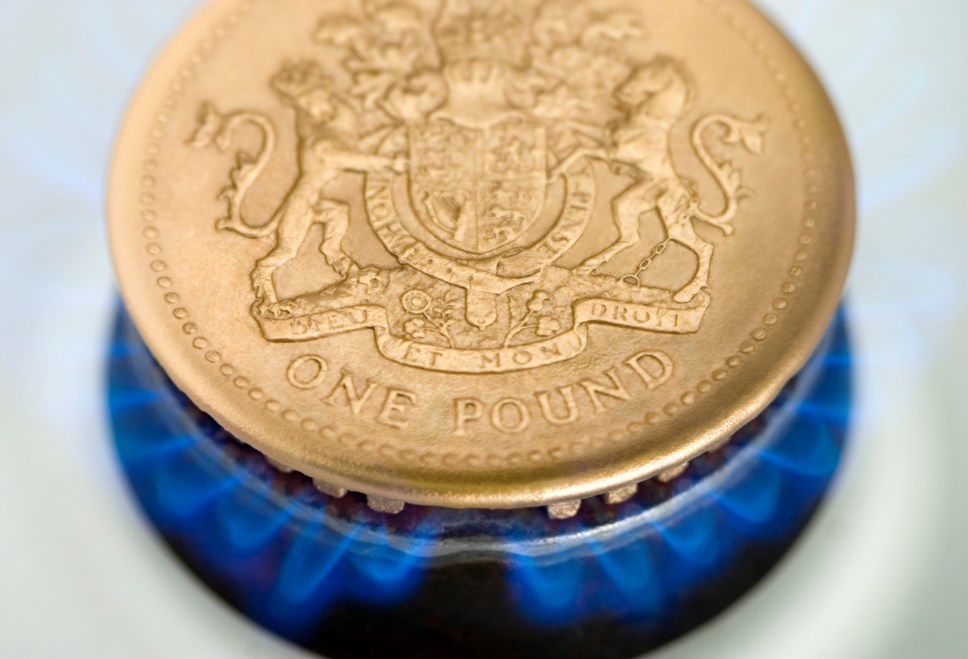
The energy myths experts warn you should IGNORE if you want to save money
- Keeping hot water on low and constant won’t save you money
- Energy won’t always cost less overnight
- Plugs don’t always have to be turned off at the switch
- Fans aren’t just a waste of energy – if you use them cleverly
With rising energy prices hitting the British public hard already, and further increases predicted, saving money on household bills is a top priority for many. However, do we know the difference between good advice and fake news?
GoCompare energy expert, Gareth Kloet, has debunked some of the most common energy myths – which could cost you money rather than helping you make a saving:
- Is it really cheaper to use energy overnight?
Gareth says, “This one isn’t a total myth, because for some consumers, energy really is cheaper overnight. This is because suppliers sometimes charge you a cheaper rate in off-peak periods, which typically fall overnight – when the majority of people are sleeping and therefore using less energy.
“However, not everyone benefits from these lower rates. Firstly, you need a 2 rate meter or a smart meter, which is capable of recording when your energy use takes place. And crucially, only people who use a significant portion of their energy in off-peak times (for instance, putting the laundry and dishwasher on before bed) will see a cost benefit.”
- Does keeping the heating or water on low and constant save energy?
“This is an energy myth – turn them off! The most energy efficient solution is to only heat what you need, when you need it. If you have your heating or your hot water on constantly, you will be paying to maintain a certain level of heat – which naturally will always be falling. So, make sure you are around to benefit from the heat you're paying to produce.”
- Can a fan actually cool a room – or does it just waste energy?
“It’s not true to say that a fan cools a room – instead, what a fan does is help the air in a room circulate more evenly. While having a fan on won’t drastically affect the temperature of your room, the moving air may help you feel cooler. If you do have a fan, use it wisely – as heat rises, the coolest air in your house will be at floor level. So, position your fan on the floor, facing upwards. This will help distribute the coolest air around the room.
“There are other, lower-cost ways to cool down your home in the summer months that are worth trying: keep doors and windows closed during the day to stop hot air getting in. Closing your curtains helps too, as that bright sunlight will raise the temperature too.”
- Does turning everything off at the socket make a difference?
“In the case of appliances such as kettles and lamps, ‘off’ really does mean ‘off’. For these kinds of common appliances, switching off at the socket isn’t necessary. However, having your devices on standby isn’t the same as turning them off – and it could be costing you.
“If you’re guilty of leaving your TV or games console on standby, consider taking the extra step and switching them off at the plug. It may not seem like much, but they’re still using energy.”
- My smart meter will work with any energy provider, right?
“Not necessarily. If your energy supplier changes, your smart meter could be compatible – or it could not. This is because early smart meters are often only compatible with the supplier that initially installed it. In this case, a change of supplier can mean you have to go back to taking your meter readings manually.
“The good news is that in recent years, new smart meters have been designed to be compatible with all suppliers. Plus, in the event you do need a new smart meter fitted, your provider will guide you through the process.”
To learn more about energy use at home and read our energy saving tips, visit: https://www.gocompare.com/gas-and-electricity/guide/energy-saving-tips/
-Ends-
For further information please contact:
Lynsey Walden on lynsey.walden@gocompare.com, or Kath Chadwick on Kathryn.chadwick@gocompare.com.
Alternatively, you can contact Rosie Johns at Front Door Communications on rosie@fdcomms.co.uk.
Contact Information
Lynsey Walden
Notes to editors
About GoCompare
GoCompare is a comparison website that enables people to compare the costs and features of a wide variety of insurance policies, financial products and energy tariffs.
It does not charge people to use its services and does not accept advertising or sponsored listings, so all product comparisons are unbiased. GoCompare makes its money through fees paid by the providers of products that appear on its various comparison services when a customer buys through the site.
When it launched in 2006, it was the first comparison site to focus on displaying policy details rather than just listing prices, with the aim of helping people to make better-informed decisions when buying their insurance. It is this approach to comparing products that secured the company an invitation to join the British Insurance Brokers’ Association (BIBA) in 2008, and it is still the only comparison site to be a member of this organisation.
GoCompare has remained dedicated to helping people choose the most appropriate products rather than just the cheapest and works with Defaqto, the independent financial researcher, to integrate additional policy information into a number of its insurance comparison services. This allows people to compare up to an extra 30 features of cover.
GoCompare is part of Future Plc and is authorised and regulated by the Financial Conduct Authority (FCA).
More information can be found here www.gocompare.com or here https://www.futureplc.com/brands/.
